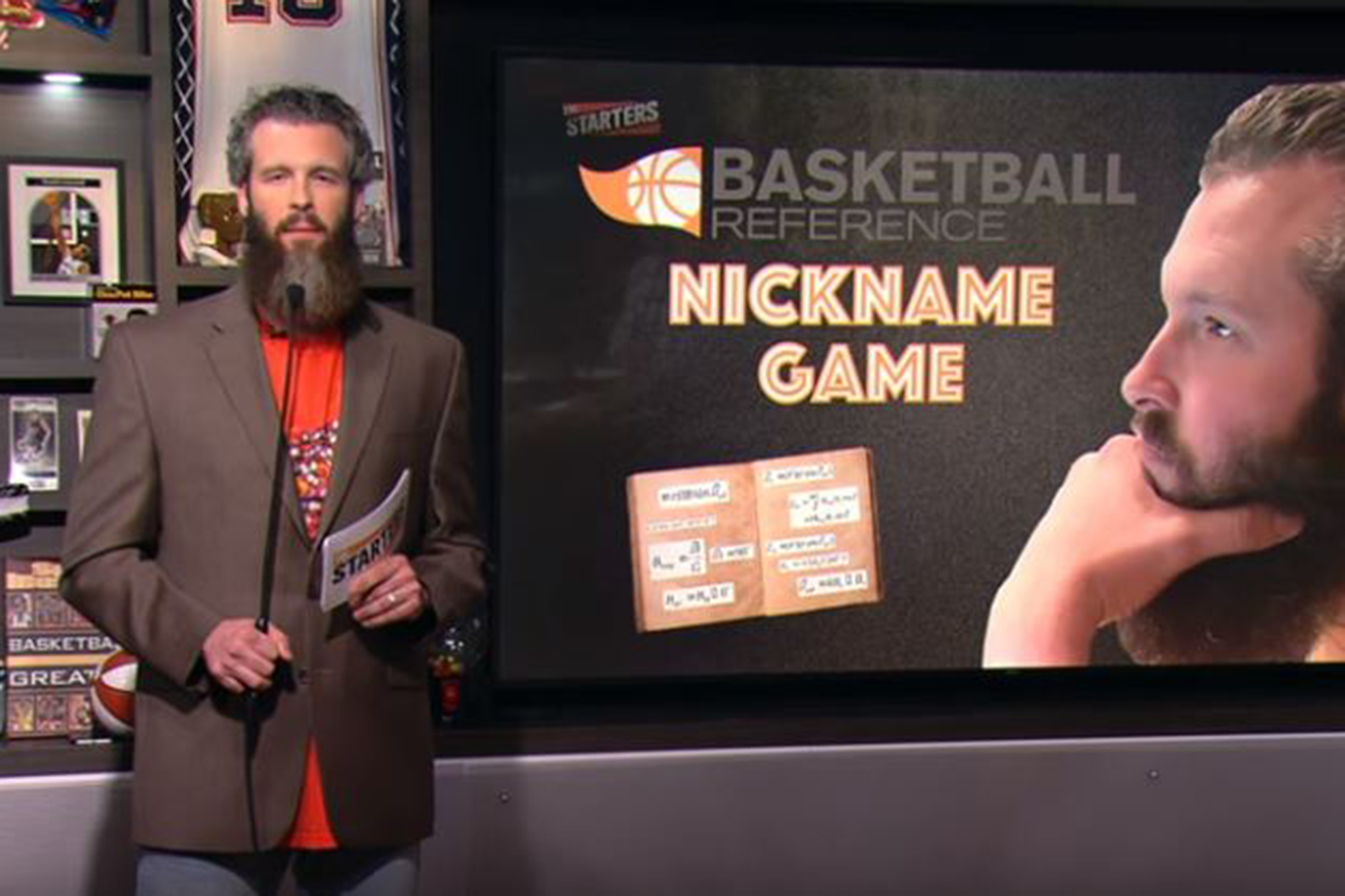Sports
Basketball Reference is bringing nicknames to the mainstream – New York Post

Thanks for contacting us. We’ve received your submission.
Thanks for contacting us. We've received your submission.
Gregg Popovich was about to get messed with.
The Spurs had just lost in Game 4 of their 2009 opening-round playoff series against the Mavericks, and Popovich was perched atop the press conference podium ready to field postgame questions.
What figured to be a routine line of inquiry turned into a chance for a then-fledgling basketball website to add to its reserves of information.
“Champ, champ. Tell me about your Fiery Francophile. The Parisian Torpedo, Tony Parker,” Popovich was implored by 1920s-style prank reporter Scoops Callahan. “Can he continue to be your main butter and egg man and still crunk the boys from big D?”
For most basketball fans, the moment, which flabbergasted Popovich, represented a sliver of comic relief amid an intense slog through the playoffs.
For a small group of roundball nerds at Basketball Reference, however, it was a chance to document history.
Years after the prank, the “Parisian Torpedo” and “Fiery Francophile” nicknames were eventually added to Tony Parker’s page on the site, and the ridiculous postgame moment was thus immortalized.
“There are probably some [nicknames] that are just sitting on people’s Basketball Reference page for so long, it just becomes their nickname,” said Neil Paine, who worked at the site from 2008-2013 and was responsible for adding those Parker monikers.
Since its founding in 2004, Basketball Reference — now run under the Sports Reference umbrella — has served as an encyclopedia for basketball junkies, compiling hordes of stats and biographical information dating back to the 1940s. Sean Forman started the Sports Reference family of sites, beginning with Baseball Reference (which first had nicknames), in 2000.
The Sports Reference umbrella now also includes sister websites for the NFL, college football, hockey, soccer, college basketball and the Olympics.
In recent years, Basketball Reference has risen from a niche stats site to an online behemoth, now ranking as the fourth-most popular basketball website in the world. That rise has taken the site’s bounty of nicknames, which Forman calls “a bit of a calling card,” into the mainstream.
In 2014, the popular NBA TV show “The Starters” created a nickname quiz segment named after the site. And within the last year, Basketball Reference received a request from an All-NBA player’s intermediaries to have a nickname scrubbed from the site.
That request was not granted, current product manager Mike Lynch says, because “it’s not our decision whether or not a nickname exists.”
Paine said that nicknames have been manually entered into the site since around 2010. It is a labor of love that deviates from Basketball Reference’s otherwise automated operations.
Over the years, site employees have pulled from media guides, old newspaper clips and print encyclopedias such as Total Basketball to form a growing picture of NBA lore. Paine would even look at RealGM message boards for inspiration when he was still at the site.
“Anything we can do to kinda make the player come alive off the page and not just be just a series of numbers, but actually learn something… It’s so easy, especially when you’re running a stats site, to just reduce players down to their numbers,” Paine said.
‘It’s not our decision whether or not a nickname exists.’
While the site lets fans peek at game logs from as far back at the 1946-47 season, it’s Basketball Reference’s treasure trove of nicknames that truly shows the personality of the NBA.
Nets guard Joe Harris is apparently called Beef Jerky Joe, inspired by the beard he sometimes sports that resembles the Sasquatch from Jack Link jerky commercials.
Former Knick Channing Frye is listed as the “Buffet of Goodness,” a nickname that was coined as a nod to the big man’s versatile game.
And Fred Hoiberg is marked down as “The Mayor,” which Forman believes goes beyond the raw numbers to demonstrate the former Bulls coach’s stately vibe.
You wouldn’t be forgiven for doubting the validity of some of the site’s more outlandish names — even its employees have done the same.
When Lynch joined the website in 2014, he surveyed Basketball Reference and thought there was some cleaning up to do.
“I remember sort of thinking like, ‘I feel like a lot of these [nicknames] need to be deleted,’” Lynch said. “Like, they almost seem like a joke or something.”
Lynch was incredulous at Eric Gordon’s profile, which displayed an unusual nickname from the “Lord of the Rings” universe.
“I’ve never heard anyone call Eric Gordon ‘The Hobbit,’” he remembered thinking at the time.
Sure enough, Lynch was proven wrong, and soon learned that the rest of the site’s nicknames were legit as well. A Google search brings up a 2009 Sports Illustrated article in which Gordon not only confirmed the goofy nickname, but actually said he liked it.
“I’m an undersized guy who does powerful things,” Gordon said at the time.
Though the site does not make nickname-entry a normal part of its operating routine, it’s happy to listen to what basketball fans are saying and react accordingly.
When Celtics center Robert Williams was dubbed the “Time Lord” by Celtics Twitter and the name took off, Basketball Reference followed suit and added it to Williams’ profile.
But that wasn’t the first time the site added a nickname for Williams. He was also listed as “Boo-Butt” (a pet name from his mother) in the official NBA Draft media guide months earlier, according to Lynch.
That the website publishes monikers found on both Twitter and old-fashioned papyrus shows how a catchy nickname can pervade sports, and the duty the site feels to follow suit.
ROBERT WILLIAMS. TIMELORD. pic.twitter.com/gES9Bxkd0R
— Nolan Murray (@nurray_molan) December 1, 2018
“For us it’s really kinda just [about] giving as rich of a factual presentation as we can,” Forman said. “It gives a little bit more of the intangible view of who the player was than just the objective numbers might give.”
Basketball Reference doesn’t claim to be a fully comprehensive source for nicknames, and the vast majority of the site is filled with numbers, including counting stats, per-48 statistics and metrics such as PER that quantify a player’s impact on the court.
And yet, the site’s design gives a subtle clue about what information it thinks will truly persist with basketball fans of the future.
Nicknames are listed atop the page alongside colleges, positions and a picture of the player.
As for the raw numbers?
“If you go to someone’s Basketball Reference page,” Paine said, “you have to scroll down to see the stats.”









